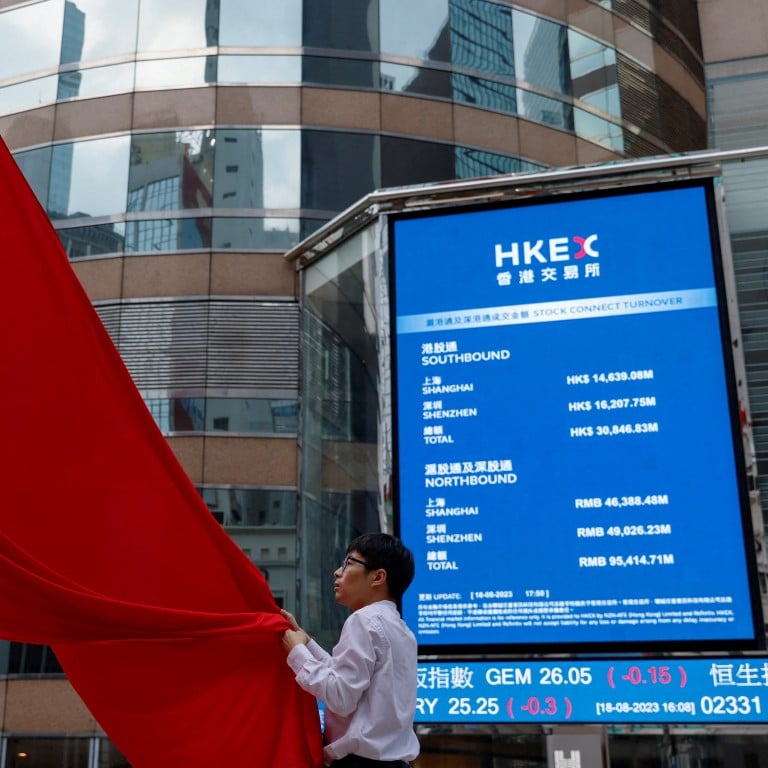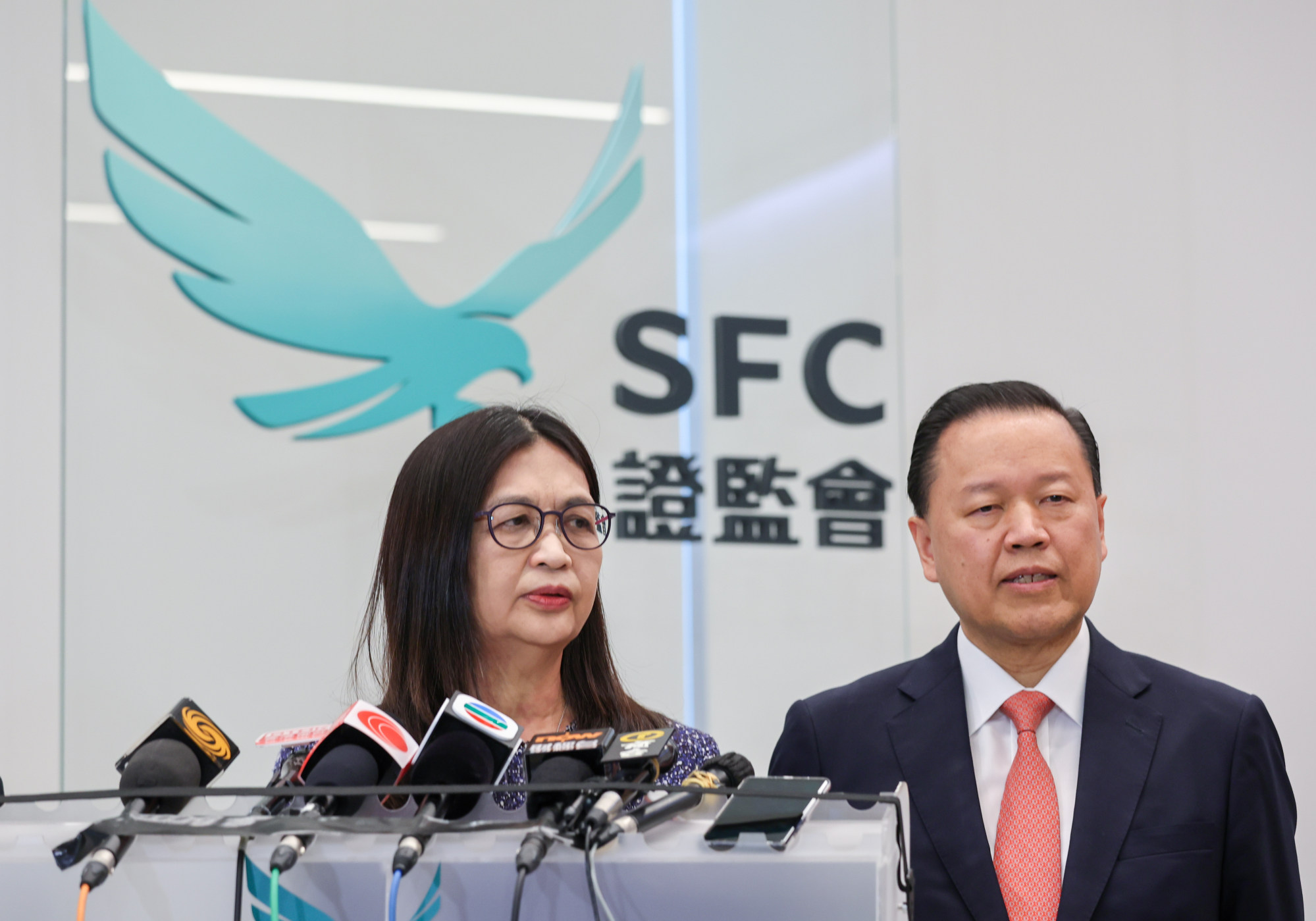
Hong Kong’s SFC Chairman proposes slashing Stock Connect threshold by 80% to draw mainland Chinese funds to city’s market
- Investment threshold for the Stock Connect scheme should be cut to 100,000 yuan (US$13,900) from 500,000 yuan, SFC’s Tim Lui says
- Lui urged mainland regulators to speed up the registration process for Chinese companies seeking to list in Hong Kong and help roll out more trading products
The head of Hong Kong’s securities regulator has proposed lowering the investment barrier for mainland Chinese traders to lift stock market turnover and boost sentiment.
The minimum asset requirement for investing in Hong Kong equities via the southbound leg of the Stock Connect programme should be lowered to 100,000 yuan (US$13,900) from 500,000 yuan, according to one of the two submissions by Tim Lui, chairman of the Securities and Futures Commission (SFC), to the National People’s Congress (NPC), China’s annual parliamentary meeting, in his capacity as a delegate.
Lui was one of 36 delegates from Hong Kong who attended the NPC in Beijing, where they proposed bills on key policies and deliberated on a government work report outlining major economic targets for the year. The political gathering ended on Monday.
He also suggested that the mainland’s market regulator speed up the registration procedure for Chinese companies seeking to list in Hong Kong and assist the city in launching more derivative products tied to yuan assets to strengthen ties.

Lui’s proposals underscore the growing influence of mainland investors since the cross-border Stock Connect scheme, set up in 2014, allowed them access to Hong Kong’s US$4.8 trillion stock market, where a bunch of Chinese tech giants from Alibaba Group Holding to Tencent Holdings are listed and also dominate trading volumes.
Increased participation by onshore investors could boost the valuation of overseas listed companies and help solidify Hong Kong as the third-largest stock market in Asia at a time when foreign investors are moving funds to emerging markets such as India, which is fast closing in on the city in terms of market capitalisation.
Mainland traders contributed to about 30 per cent of the daily turnover on average last year, compared with 3 per cent in 2015, according to data from the Hong Kong stock exchange.
To attract more mainland investors, Lui suggested that China slash the 20 per cent dividend tax to align with the mainland, where investors are exempt from the levy on the condition that they hold the stocks for at least a year.
On the Wealth Management Connect scheme, which allows investors from Hong Kong and the mainland to access each other’s investment products, Lui advocated allowing cross-border investment consulting services and mutual recognition of securities and futures business licences.
Lui’s proposal comes at a critical time for Hong Kong stocks. The Hang Seng Index seems to have stabilised after rebounding from close to a 13-year low, as sentiment has improved after Beijing ramped up market-rescue measures.
In Lui’s other submission to the NPC, he proposed issuing qualified domestic institutional investor (QDII) funds that will invest in Hong Kong-traded stocks, bonds and exchange-traded funds sold by the countries linked to China’s Belt and Road Initiative. The initial quota on such funds could be set at 500 billion yuan, and the move would attract more belt and road countries to issue financial assets in the city and promote the prosperity of the capital market, the submission said.

